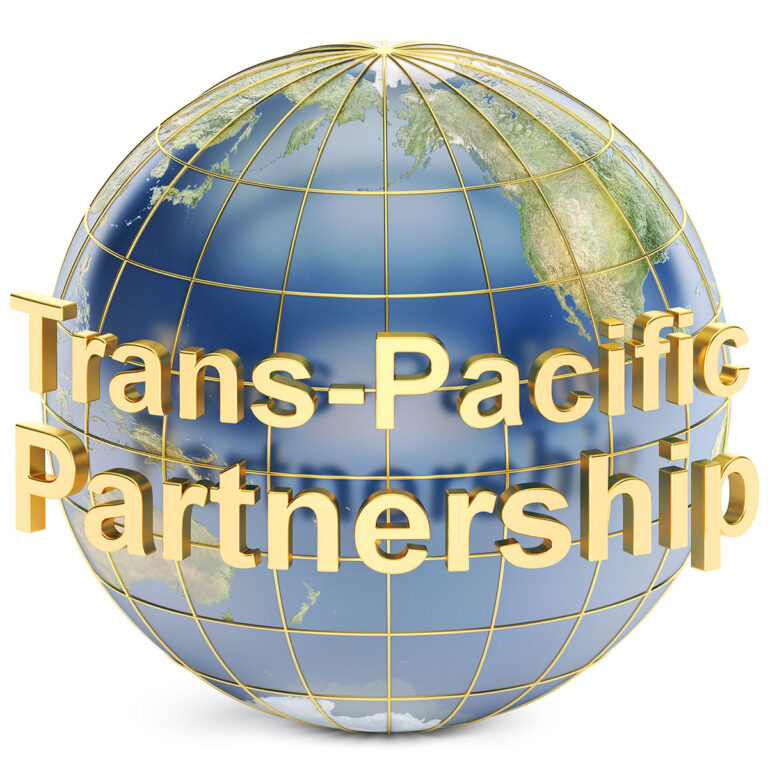The TPP is more accurately known as the Comprehensive and Progressive Agreement for Trans-Pacific Partnership (CPTPP) since the USA pulled out of the agreement in 2017. The new name has brought some changes to the agreement, but most economists and government officials agree that the CPTPP is still going to bring money, jobs and opportunities to New Zealand.
For businesses, these opportunities will come mainly through a decrease in tariffs and an increase in markets, but other aspects of the agreement will also open new growth.
Good News about Markets
The CPTPP will open up markets with a combined population of 480 million. The countries included in the agreement include four of New Zealand’s top ten trading partners, which are the destination for 31 per cent of New Zealand’s exports of goods and services.
New Zealand companies will have preferential access to Japanese markets, the third largest economy in the world. Additionally, Canada, Mexico and Peru will become new export destinations.
There will be more opportunities for Kiwi businesses to bid for government contracts in CPTPP markets, especially in Malaysia, Mexico, Peru and Vietnam.
Tariffs and Regulations
The CPTPP is, at its heart, a free-trade agreement. As such, it minimises tariff and non-tariff barriers to trade. It’s estimated that New Zealand will eventually save $222 million in tariffs each year, with $92 million of those savings coming as soon as the agreement goes into force.
Tariffs on almost all New Zealand exports will be eliminated, including kiwifruit, apples, wine, sheep, forestry products and seafood. Beef exports in Japan will see their tariff reduced from 38.5 per cent to 9 per cent. Although dairy products will still have tariffs in some markets, they will benefit from reductions and duty-free quotas.
On top of this, businesses will benefit from fewer compliance costs, streamlining of processes and a decrease in the amount of time products spend in customs.
For service providers and the digital sectors, the CPTPP brings greater openness when providing services to overseas clients, creating more certainty for those operating in the CPTPP markets.
Enforceable Standards
One of the public’s biggest fears about the TPP was the Investor-State Dispute Settlement (ISDS) provisions. These were the provisions that allowed member governments and companies in those countries to sue other governments over regulations that affect their business. For example, a chemical company could sue the NZ government for loss of revenue if the government bans a product that is shown to have public health risks.
These provisions have been largely curtailed without the US government pushing for them. In fact, the new TPP preserves the right of the government to make laws to protect people and the environment.
The regulations the CPTPP does enforce are those that will help NZ businesses. For the first time, labour and environmental standards will be enforceable in member countries. Although wages are unlikely to be equal in all member countries, developing countries will need to have laws in place for minimum wages, hours of work and occupational health and safety, bringing a more even playing field to employment costs and standards in member countries.
Impact of America’s Withdrawal
It’s expected that the new CPTPP will have more modest returns than the original TPP with the exclusion of the large US market. But the American withdrawal brings new opportunities as well. American farmers and small businesses have claimed they’ll be hurt by the exclusion once the CPTPP comes into effect. They see the opportunities that decreased tariffs and regulations will bring to businesses in member economies. New Zealand businesses can move into markets where large US corporations still face cumbersome regulations and high tariffs.
The CPTPP was signed in March by 11 countries: Malaysia, Japan, Singapore, Vietnam, Australia, New Zealand, Canada, Brunei, Mexico, Chile and Peru, but as of May 2018, it had not yet come into force. Businesses in New Zealand can look forward to fewer costs and greater opportunities around the world as soon as it does.

